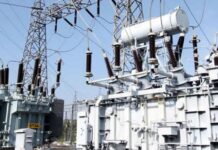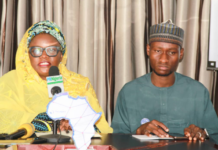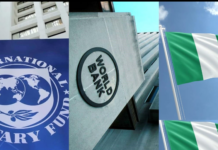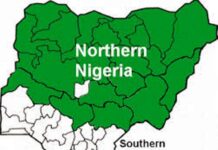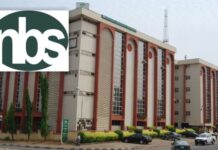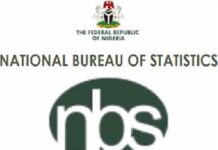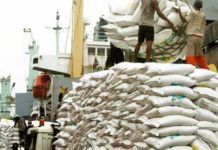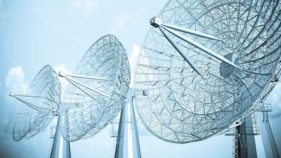
Curbing Vandalism in the Telecom Sector, by Zeenat O. Sambo
In response to the yearnings of telecom industry stakeholders to declare telecom facilities critical national infrastructure, President Muhammadu Buhari in 2020 directed that necessary physical protective measures be put in place to safeguard telecommunications infrastructure deployed across the country.
With the presidential directive, Minister of Communications and Digital Economy, Prof Isa Ali Ibrahim Pantami, liased with the Office of the National Security Adviser (ONSA), Defence Headquarters (DHQ), Nigeria Police Force (NPF), Department of State Services (DSS) and the Nigeria Security and Civil Defence Corps (NSCDC) for enforcements of Presidential directive.
However, with the implementation of the directive, not much has been achieved, as telcos continue to witness incessant attacks on their infrastructure.
Meanwhile, a recent advocacy for the protection of telecommunication infrastructure by the Nigerian Communications Commission (NCC) highlighted the loopholes that might hinder the smooth conduct of the upcoming election in the next six months.
This was emphasized by the Executive Vice Chairman of NCC, Prof. Umar Garba Danbatta, at the 6th Edition of the Annual Conference of Guild of Corporate Online Publishers (GOCOP) in Lagos with a focus on the forthcoming election.
With Prof. Mahmood Yakubu, the Chairman of the Independent National Electoral Commission (INEC), and key stockholders in attendance, Prof Dambata harped on the importance of telecom infrastructure as a critical factor to the success of the forthcoming general election in 2023.
Considering that about 50,000 cases of major destruction to telecommunications infrastructure and facilities have been reported across the country in the past five years, the NCC boss decried the worrisome development and advised on the need to educate the public to assist in curbing this menace for the benefit of the country.
Telecom as any method of transmitting voice, data, or video over significant distances by electronic means constitutes a large sector and plays a significant role in the dissemination and effective utilization of emerging technologies in every society, especially when it comes to protecting and prioritizing people’s rights in elections.
Historically, telecommunications in Nigeria actually began in 1886 as a way for the colonial government to connect with other colonial entities. However, the telecommunications revolution that transformed Nigeria in different ways coincided with the dawn of a new millennium.
With the complete liberalization of the telephone industry in January 2001, a breakthrough was made in telecom infrastructure, allowing private telecom operators to provide telephone services previously the exclusive domain of government-owned Nigerian Telecommunications Limited (NITEL) and its subsidiary, M-Tel, which offered analogue mobile services.
With over 21 years of experience in private-sector telecom services, Nigeria’s telecom revolution has put the country at the forefront of national and international communication recognition. This revolution stirred up many changes in the history of the country. Notably, Nigeria moved from a meager 400,000 NITEL lines in 2001 to 297 million connected mobile telephone lines within the space of two decades.
As telecom service providers grew vibrantly and built infrastructure in host communities, vandalism, theft, and destruction of telecom structures increased. The continuous destruction of telecommunication infrastructure in the country and the significant negative impact it has on the quality of service to consumers cannot be overemphasized. There are countless dropped calls, disruptions in data and internet connectivity, aborted and undelivered short messaging services (SMS), and failed calls as a result of infrastructure vandalism.
Read Also:
In the past few years, the telecoms sector has been plagued by negative attitudes and actions by hostile communities, theft of diesel, batteries, and power generators, and digging up and cutting fibre optic cables by construction workers.
The sealing/locking up of BTS sites by agents of states/local governments, community stakeholders, as well as other disruptive activities by individuals, need to be curtailed to prevent the interminable destruction of telecom structures and services across the country.
It is noteworthy that the importance of telecom services has put Nigeria at the global forefront of tech development. With their computers, smartphones, and Internet connections, many Nigerians now rely solely on virtual communication for various purposes.
Still, many people are unaware of the dangers and backwardness of a society without internet or telephone services in the future. In addition to providing Internet access to devices, such infrastructure also helps in the digitization of human labour.
According to reports, most of this vandalism happens in local communities where vandals are not aware of or affected by the dangers of their actions. This affects the communities’ access to communication and internet services.
In particular, it is important to note that protecting telecom infrastructure contributes to creating jobs, facilitating e-commerce, promoting education proficiency, supporting rural farmers to connect with potential buyers from the cities, and enhancing connectivity for rural and urban communities alike.
Whenever telecom infrastructure is vandalized, community members are advised by the Commission to notify law enforcement agencies such as the Police, Nigeria Security, and Civil Defence Corps, and to share the information with family, friends, and neighbours.
Given its broad range of services and impact on the success of the 2023 elections throughout Nigeria, NCC’s role and achievements as an independent national regulatory authority for Nigeria’s telecommunications industry are noteworthy considering Nigeria’s rapid transition to a digital economy.
It is for this reason that the NCC boss noted that “If telecom infrastructure is vandalized or damaged, it would create problems in the area of data transmission during elections, citizens will find it difficult to use their phones to seamlessly communicate and journalists too might find it difficult in being able to access their web platforms to disseminate necessary information, which members of the public require to make informed decisions at every point”.
Additionally, digital applications such as Wardchat and others are designed to ease the electoral process through a social media platform aimed at digitalizing electoral communities on smartphones. These platforms require a reliable network and uninterrupted services to function. Electronic voting or e-voting tech advancement has often been advocated to protect the integrity of national electorate systems and continuous vandalism can undermine this achievement.
Taking into consideration the importance of the telecom sector and the NCC’s sanitization workshop on curbing vandalism over the years, it is evident that a coordinated effort by Nigerians, the media, network providers, and stakeholders are required to tackle this menace as security agencies cannot be present at all telecommunication infrastructure sites at the same time.
Protecting critical national infrastructure assets before, during, and after the 2023 general elections should be the goal of every community’s security outfit. Telecom facilities should be upgraded and protected to ensure seamless collation and transmission of elections outcomes. Communities must do the needful to ensure a credible and free 2023 general election for consolidation of a thriving digital economy built on the foundations of enduring democratic tenets.
Zeenat O. Sambo is with Economic Confidential, Wuye, Abuja



